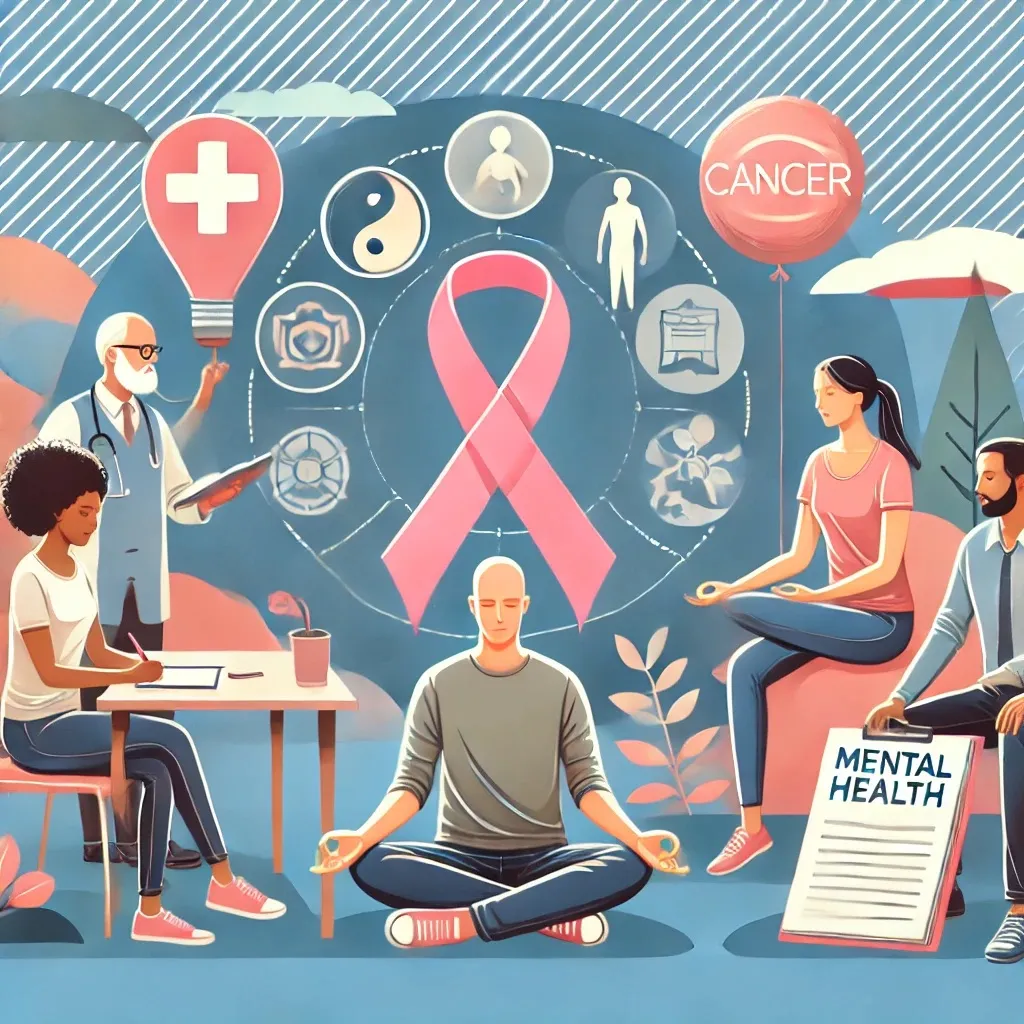Mental health is a crucial aspect of overall well-being and has significant implications for cancer prevention. Stress, anxiety, and depression can weaken the immune system, increase inflammation, and lead to unhealthy behaviors that elevate cancer risk. Prioritizing mental health through activities like meditation, journaling, and therapy can help reduce these risks and promote better health.
How Mental Health Affects Cancer Risk
- Stress and Immune Function: Chronic stress can suppress the immune system, making it less effective at detecting and destroying cancer cells. Managing stress through mental health practices can enhance immune function.
- Inflammation: Psychological stress can lead to chronic inflammation, a known risk factor for cancer. Reducing stress and improving mental health can help lower inflammation levels.
- Unhealthy Behaviors: Poor mental health can contribute to unhealthy behaviors such as smoking, excessive alcohol consumption, poor diet, and lack of exercise. These behaviors increase cancer risk. Improving mental health can promote healthier lifestyle choices.
- Hormone Regulation: Stress affects hormone levels, such as cortisol, which can influence cancer development. Managing stress helps regulate these hormones and reduce cancer risk.
Mental Health Activities for Cancer Prevention
- Meditation:
- Benefits: Meditation reduces stress, improves emotional regulation, and enhances overall well-being. It can lower cortisol levels and reduce inflammation.
- Practice: Set aside a few minutes each day for meditation. Focus on your breath, clear your mind, and practice mindfulness.
- Journaling:
- Benefits: Journaling helps process emotions, reduce stress, and gain insights into your thoughts and behaviors. It can improve mental clarity and emotional resilience.
- Practice: Write about your feelings, experiences, and goals regularly. Reflect on positive aspects of your life and express gratitude.
- Therapy:
- Benefits: Talking to a therapist can provide support, guidance, and coping strategies for managing stress, anxiety, and depression. Therapy can improve mental health and reduce the risk of unhealthy behaviors.
- Practice: Seek professional help if you experience persistent stress, anxiety, or depression. Regular therapy sessions can provide significant benefits.
- Physical Activity:
- Benefits: Exercise boosts mood, reduces stress, and improves overall mental health. It also promotes physical health and reduces cancer risk.
- Practice: Engage in regular physical activities such as walking, running, yoga, or dancing. Aim for at least 30 minutes of moderate exercise most days of the week.
- Social Connections:
- Benefits: Strong social connections provide emotional support, reduce stress, and improve mental health. They can encourage healthy behaviors and reduce cancer risk.
- Practice: Stay connected with friends and family. Join social groups or engage in community activities to build new relationships.
- Healthy Lifestyle Choices:
- Benefits: A balanced diet, adequate sleep, and avoiding substances like tobacco and excessive alcohol support both mental and physical health.
- Practice: Make conscious choices to eat nutritious foods, maintain a regular sleep schedule, and avoid harmful substances.
Practical Tips for Enhancing Mental Health
- Set Realistic Goals: Set achievable goals to reduce stress and increase motivation. Break tasks into smaller steps and celebrate your progress.
- Practice Gratitude: Regularly reflect on things you are grateful for to boost positive emotions and reduce stress.
- Stay Organized: Keep a planner or to-do list to manage your time and reduce feelings of being overwhelmed.
- Limit Screen Time: Reduce time spent on electronic devices to avoid information overload and promote relaxation.
- Engage in Hobbies: Spend time doing activities you enjoy to improve mood and reduce stress.
Conclusion
Prioritizing mental health is a crucial aspect of cancer prevention. By engaging in activities such as meditation, journaling, therapy, and maintaining social connections, you can reduce stress, improve emotional well-being, and promote healthier behaviors. Make mental health a priority to support overall well-being and reduce your risk of cancer. Small, consistent efforts can lead to significant improvements in your quality of life and long-term health.
